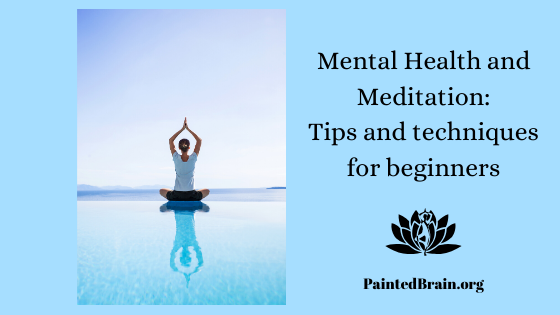With all of the visual stimuli that surround us, it can be hard to switch off our brains, unwind and be present. Meditation is a practice that helps calm minds and provides an opportunity to relax and reset. Meditation has been found to have many different health benefits from your physical, emotional, spiritual and mental health. Read on to learn about some helpful meditation tips.
It starts with small steps
When learning how to meditate, it can be difficult to sit and relax for long periods of time. At first, you should begin with 3-5 minutes. Starting off in a small time frame will help you ease into this- remember, it’s a journey, not a race. Eventually, you can work your way up to longer periods of time. As your mind and body get used to meditating, you will find that your meditation sessions will naturally get longer.
Watch your thoughts come and go — don’t try to push them away
A popular misconception about meditation is that you are supposed to shut your mind off with no thoughts lingering. Not only is this incorrect, but it is close to impossible! If thoughts pop into your mind while you are meditating, acknowledge them then let them float away. Some people like to imagine their thoughts as clouds and watch them come and go. Don’t make judgments about your thoughts and don’t try to push them away — just let them form and leave. Leaving no space for judgments will help you be more in tune with your mental health. You may find that when you observe your thoughts they disappear quite quickly!
Don’t get frustrated- be patient with yourself
As a beginner, it can be easy to get frustrated with yourself while meditating. This is completely normal due to our minds wanting to reach the goal of relaxation and reset, but don’t push those negative thoughts onto yourself. When feelings of frustration arise, try your best to be patient and to not give up. Remind yourself that meditation is good for both your physical and your mental health. Mediation is a process and like everything else, it takes practice and persistence. Even one minute of quiet time is good for your brain and body – so continue working towards finding that place of peace.
Focus on your breathing
One piece of advice that works well for many who practice meditation is focusing on the breath. A few things you can focus on are:
- how it feels for air to pass in and out of your nose
- how your lungs feel as they fill up with air and empty out.
Breathing can give you something to hone in on and help guide your meditation session.
Focus on one part of your body at a time
Another tip that can help guide your meditation practice is by focusing on relaxing one part of your body at your time. Start all the way down at your toes then work your way to the top of your head. Try to breathe into the different parts of your body in order to relax them. This gives you the space to be in tune with your physical body and your mental health. After you’ve finished, you may find that your whole body feels calmer and ready to return to your day.

Photo by Jared Rice on Unsplash
Try a meditation app
If you are having difficulties meditating, try a meditation app! There are many out there that can help guide your meditation and give it a sense of focus. For example, the app Headspace has ten-minute bite-sized meditation sessions that are perfect for a beginner. After regularly committing to meditation for just ten minutes a day, you may find that you are more focused and effective in your work. https://www.headspace.com
To learn more about the benefits of meditation, click here.



